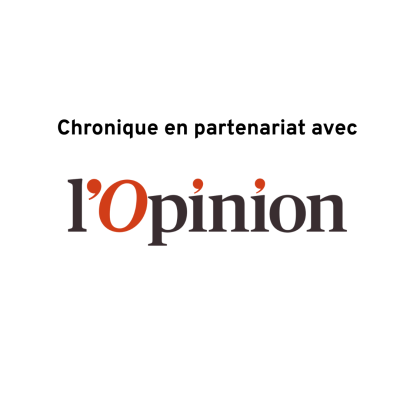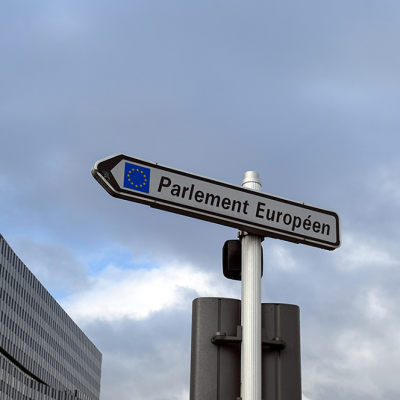Garantir la victoire du « oui » : du premier au deuxième référendum
Notre Europe a demandé à Brigid Laffan, directrice de la campagne pour le oui, d’expliquer la campagne de mobilisation pour la ratification du traité de Nice lors du second référendum.

BRIGID LAFFAN
La ratification du traité de Nice a été un moment critique des relations entre l’Irlande et l’Union européenne et l’Europe élargie. La bataille de la ratification du traité de Nice portait autant sur l’Irlande actuelle que sur la relation entre l’Irlande et l’Europe et l’avenir de l’Union européenne. Elle portait sur les différentes conceptions de l’Irlande et sa place dans le monde. Je tenais absolument à participer à ce débat national déterminant, et ce pour trois raisons principales. La première, c’était que le bilan de 30 ans d’adhésion de l’Irlande à l’Union européenne était extrêmement positif.
En tant qu’Irlandais, nous risquions d’oublier notre expérience de l’UE. Deuxième raison : les Etats d’Europe centrale misaient sur une ratification par l’Irlande d’un traité qui leur permettrait de poursuivre en douceur leurs négociations en vue de leur adhésion en 2004. Troisième raison : aucune preuve ne venait corroborer les affirmations et les arguments présentés dans le cadre de la campagne en faveur du « non ». Le langage utilisé pour caractériser l’UE, notamment les termes de « super-Etat » et de « militariste », était à maints égards directement emprunté à la droite Tory britannique. Il s’agissait clairement d’une tentative de diabolisation et de fausse représentation de l’Union européenne, ceci afin d’effrayer les électeurs quant à la dynamique d’intégration et à sa trajectoire future. En tant qu’intellectuelle, il m’a semblé que le débat se devait d’être mené en se basant sur des preuves et non pas sur de simples affirmations. Un quatrième point, C’est que la campagne menée par le camp du « oui » lors du 1er référendum avait été particulièrement faible. Le gouvernement a en effet mené une campagne sans éclat, laquelle n’a pas mobilisé ni convaincu les électeurs. Une faible participation (34 %) et la vigueur de la campagne du « non » ont entraîné le rejet du traité. En tant que citoyenne irlandaise, J’estimais qu’il méritait que l’on se batte en sa faveur.
Tous ceux qui se sont impliqués dans le mouvement Irish Alliance for Europe (Alliance irlandaise pour l’Europe) se souviendront de moments particuliers, des moments qui ont fait que cette campagne valait la peine d’être vécue. Mon souvenir le plus fort reste un meeting du Forum National sur l’Europe à Castlebar, dans le comté de Mayo, auquel je participais avec Vincent Woords, un candidat parlementaire de Sinn Fein, où je devais tenir un discours du haut d’une estrade. Le meeting avait attiré de nombreux supporters du « non », profondément hostiles à mes points de vue et à mon message. Durant la manifestation, alors que je parlais, un membre du conseil municipal de Sinn Fein, s’est levé et s’est approché de l’estrade. Il m’a crié de retourner à Pale (Dublin) et de laisser les gens de Mayo tranquilles, en m’invectivant : « Pourquoi est-ce que vous venez à Mayo dire aux gens d’ici comment ils doivent voter ? » J’étais clairement considérée comme quelqu’un de Dublin, incapable de comprendre les problèmes de l’Ouest de l’Irlande. Dans ce contexte d’hostilité très palpable, un homme s’est levé dans le public ; il voulait dire ce que l’Europe signifiait pour lui. Cet homme a quitté le système éducatif irlandais sans savoir lire ni écrire pour cause de dyslexie. l’UE a subventionné des programmes de seconde chance lui permettant d’apprendre à lire ; sa vie en a été transformée. l’Europe lui a donné une seconde chance, pour le simple plaisir de lire le journal ou un livre. c’était bien la preuve d’une « Europe vivante » et non la distante UE, coupée des réalités, telle qu’elle est présentée dans bon nombre discours. Ce simple aperçu de ce qu’était véritablement l’Europe vivante valait bien le déplacement à Castlebarn.
Aristote faisait observer « qu’il faut s’entraîner pour devenir un citoyen, de la même manière qu’il faut s’entraîner pour devenir un artisan ». l’Irish alliance for Europe a été un exercice de citoyenneté active et nous avons tous tiré profit de cet entraînement. Au niveau personnel, l’engagement dans la campagne avec l’Irish Alliance for Europe a été une expérience très bénéfique. Il m’a permis de me replonger dans la diversité de la société irlandaise. J’ai quitté la salle de conférences et mon bureau pour endosser le T-shirt jaune. J’ai appris que l’Europe pouvait être communiquée.
The ratification of the Nice treaty represented a critical juncture in Ireland’s relations with the European Union and the wider Europe. The Nice ratification battle was as much about contemporary Ireland as it was about Ireland’s relationship with Europe and the future of the European Union. It was about different conceptions of Ireland and its place in the world. I was not prepared to remain on the sidelines in a critical national debate. I was motivated by three main concerns. First, the balance sheet of Ireland »s 30 years of EU membership was very positive. As a people, we were in danger of forgetting our experience of the EU. Second, the states of central Europe were looking to Ireland to endorse a treaty that would enable them conclude their accessions negotiations smoothly and in time for membership in 2004. Third, many of the assertions and arguments of the « no » campaign could not be supported by evidence. The language deployed to characterise the EU, notably « superstate » and « militarist » was in many instances borrowed from the British Tory right. There was a clear attempt to demonise and misrepresent the European Union and in turn to frighten the electorate about the dynamics of integration and its future trajectory. I felt that as a scholar, the debate should be conducted with attention to evidence and not just assertion. Fourth, Nice I was characterised by a very weak campaign on the « yes » side. The Government ran a lack lustre campaign that failed to engage or persuade the electorate. The low turnout (34%) and the energy of the « no » campaign led to the defeat of the Treaty. For me as an Irish citizen, this was one worth fighting for.
All those involved in the Irish Alliance for Europe will remember particular instances that made this campaign worthwhile for them. My strongest memory remains a meeting of the National Forum on Europe in Castlebar in County Mayo where I was speaking on a platform with a Sinn Fein parliamentary candidate, Vincent Woods. The meeting was packed with « no » supporters who were deeply hostile to my views and message. During the meeting, a Sinn Fein councillor left his seat while I was speaking and began to approach the podium. He yelled at me to get back to the Pale (Dublin) and leave the people of Mayo alone; « Who do you think you are coming to Mayo telling the people of Mayo how to vote » he shouted at me. I was clearly stereotyped as a Dubliner who did not appreciate the problems of the west of Ireland. In the midst of this palpable hostility, a man stood up in the audience and said that he wanted to tell the meeting what Europe meant to him. This man left the Irish educational system unable to read and write because of dyslexia. EU funded second chance programmes gave him an opportunity to learn to read and as a result his life was transformed. For him, Europe stood for a second chance, for the simple pleasure of being able to read a newspaper or book. This was evidence of the « living Europe » not the remote disconnected EU of so much discourse. This glimpse of the living Europe made the trip to Castlebar worthwhile.
Aristotle observed that « one needs to be trained as a citizen as much as a craftsman needs to be trained ». The Irish Alliance for Europe was an exercise in active citizenship and we all benefited from the training. At a personal level, involvement in the campaign with the Irish Alliance for Europe was a truly rewarding experience. It enabled me to re-connect to a broad cross-section of Irish society. I left the lecture hall and my desk and donned the yellow T-shirt. I learnt that Europe can be communicated.
{{ADRIAN LAGAN}}
My involvement in the movement to secure a change in the result of the 1st Treaty of Nice referendum sprang from a set of highly personal motives.
One of these was related to what I might call « home » issues and the other related to issues from « abroad ».
I come from a rural part of Mayo in the West of Ireland. For decades, arguably for centuries, all that was on offer to people from Mayo was the path of emigration, with all the consequent social dislocation and despair. Our membership of the EEC and then the EU had one crucial impact- it gave us the means, the benign political and economic environment that allowed us to generate solutions to that legacy of economic underdevelopment and its hated lieutenant, emigration.
The other side was as a student of history; I couldn »t accept that the Irish people would put a block in the path of the states of Central and Eastern Europe in their desire to join the EU. I found the idea that we would delay it, let alone possibly derail it; a horrendous one and I believed that it was politically vital to prevent that. I didn »t want the positive image of Ireland, of which my generation had known virtually no other, to be tarnished by being seen as the barrier to a group of states that only hoped to do what we had done.
As I continually argued with opponents of the treaty during the campaign, the debate was about 2 things- letting enlargement happen and the image of Ireland abroad. If we had voted no, the headlines in the European papers would not have been « Ireland says no to enhanced co-operation « or « Ireland says no to changes in the structure of the Commission ». We all know what the headlines would have been and I didn’t want to give anyone the excuse to write them.
Above all, I support Europe and the process of integration because for all its failings (and we should never forget them), in the big picture, it works. And it is a hell of a lot better than anything else we have tried.




